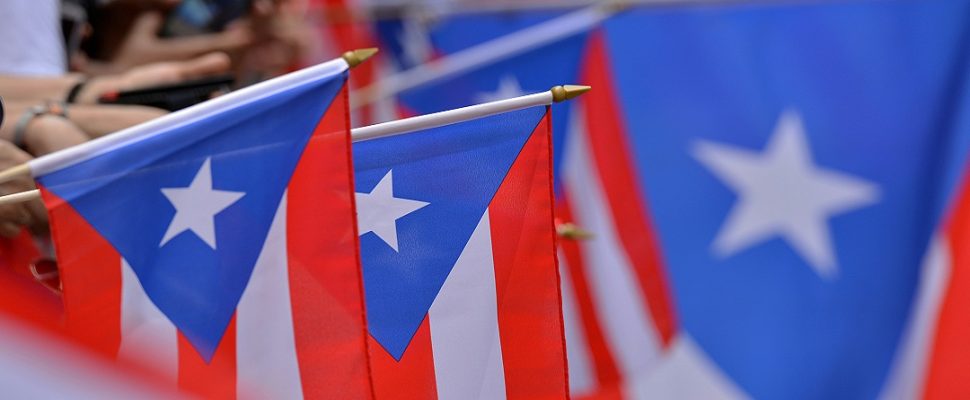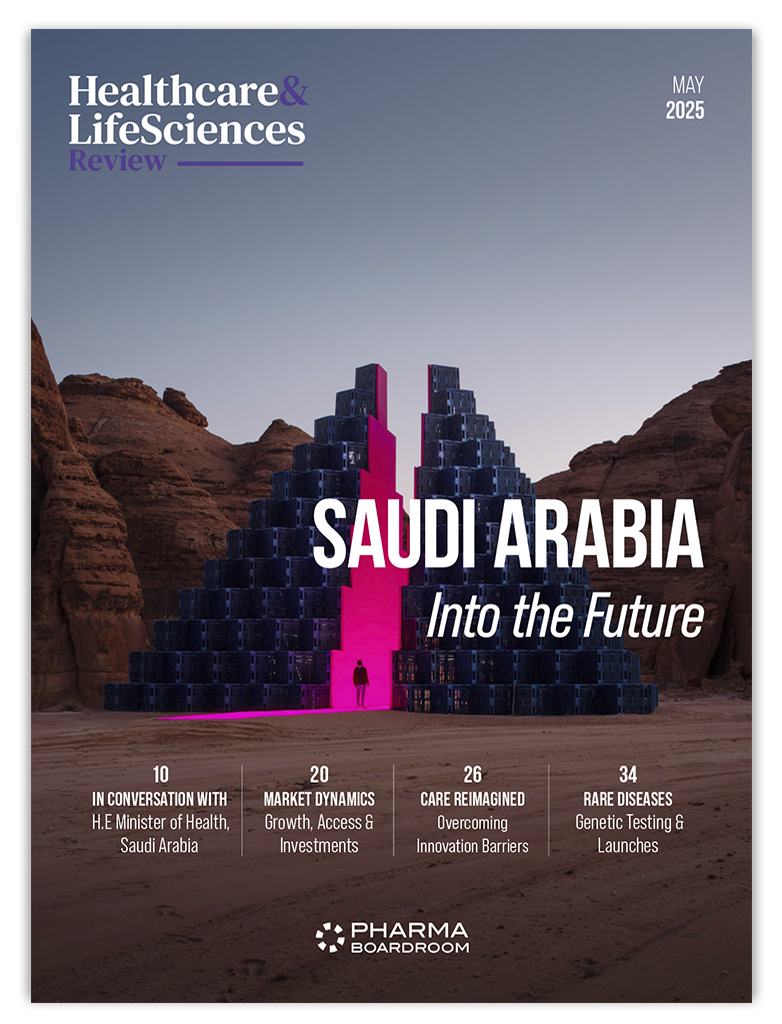Puerto Rico leads all US jurisdictions in biopharmaceutical exports, shipping to over 120 countries. With a rapidly expanding life sciences sector and growing pharma logistics capabilities, the island is positioning itself as a global hub—but industry leaders say there’s still work to be done.
Life Sciences and Logistics Dynamo
Puerto Rico is leveraging its unique status as a US territory, strategic location near the mainland, and attractive tax incentives to strengthen its life sciences industry—an economic powerhouse that contributes significantly to the island’s GDP. Having rebounded from financial turmoil, natural disasters, and the COVID-19 pandemic, the island is now solidifying its role as a key hub for both pharmaceutical production and logistics.
Sascha Herzig, president and CEO of logistics service provider E.T.H. Cargo, is confident in Puerto Rico’s expanding influence. “Puerto Rico is becoming an increasingly important player in the global pharmaceutical industry. Its role in life sciences and logistics is growing, and the infrastructure improvements in recent years are positioning the island as a critical hub.”
The island’s commitment to quality and capacity expansion is reflected in its rising healthcare exports. According to the Puerto Rico Life Sciences Air Cargo Community, exports increased by 8% in 2024 compared to the previous year. Air cargo, in particular, has been a driver of this growth, offering greater connectivity and improved service reliability. “Air cargo has become pivotal for the pharmaceutical sector, and our progress in certification proves Puerto Rico’s commitment to global standards,” says Herzig. A notable milestone is the recent CEIV Pharma Certification awarded to Luis Muñoz Marín International Airport (SJU) by the International Air Transport Association (IATA), ensuring world-class handling, storage, and transportation of pharmaceuticals and biologics.
This enhanced infrastructure has drawn global logistics leaders to Puerto Rico. “As the largest US exporter of pharmaceuticals and medical devices, Puerto Rico is often called the ‘medicine cabinet of the world.’ In fact, the island exports more life sciences products than any US state,” notes Tom Vincent, VP of Prime Air Cargo. This dominant position underscores Puerto Rico’s crucial role in the international pharma and medical device supply chain.
Recognizing its strategic importance, logistics companies are making targeted investments to strengthen Puerto Rico’s reliability. “We’ve significantly expanded infrastructure to enhance flexibility,” shares a senior executive from a multinational logistics firm. “By operating hubs on both the east and west coasts of the island, we ensure redundancy, allowing us to adapt swiftly to disruptions while maintaining reliability and product integrity.”
Collaborative Effort
Puerto Rico has strengthened its reputation as a logistics hub by fostering industry-wide collaboration through initiatives such as the Puerto Rico Life Sciences Air Cargo Community, established three years ago. “For the first time, all stakeholders in the supply chain—shippers, airlines, ground handlers, and others—have come together in a neutral forum to discuss and address challenges collectively,” says Herzig. “This platform enables shippers to voice their needs, airlines to highlight their constraints, and all parties to ensure clear communication and compliance in handling critical products such as pharmaceuticals and medical devices.”
Prime Air Cargo’s Vincent views the initiative as a key advantage for Puerto Rico. “This community strengthens Puerto Rico’s position as a leader in life sciences logistics. By aligning capabilities across the supply chain, we provide a comprehensive and reliable logistics framework. This offers a significant edge when attracting new pharmaceutical companies. Organisations like Invest Puerto Rico can now showcase our dedicated life sciences air cargo community as a unique asset to potential investors.”
Modelled on successful pharma cargo hubs in Brussels and Amsterdam, the Air Cargo Community began as a government-led initiative but has since transitioned into a private entity. “This structure ensures continuity and independence from political changes, reinforcing Puerto Rico’s ability to attract and support life sciences businesses with world-class logistics standards,” says Vincent.
Political Tremors
Despite the island’s progress as a logistics hub, recent political shifts could disrupt federal funding, stall infrastructure projects, and reshape the island’s energy policy in ways that may increase costs for businesses. With Jenniffer González taking office as territorial governor and Donald Trump returning to the White House, Puerto Rico’s economic strategy is set to shift in favour of looser environmental regulations, continued reliance on fossil fuels, and reduced federal oversight of financial aid.
Trump’s first term saw delays in disaster relief funding and proposed freezes on grants and loans that would have cut billions in economic support. His second term is already bringing similar tensions, with federal funding freezes slowing critical disbursements meant for infrastructure and business development. This could mean prolonged delays in projects vital to the pharmaceutical and logistics sectors, particularly in modernising Puerto Rico’s outdated energy grid. A recent proposal, backed by Governor González and aligned with Trump’s administration, aims to roll back the island’s renewable energy targets and extend operations at its coal-fired power plant. While supporters argue this will provide short-term stability, critics warn it will drive up energy costs, increase pollution, and make Puerto Rico less attractive to pharmaceutical manufacturers seeking sustainable operations.
For the life sciences industry, political consistency at the territorial level is essential for maintaining investor confidence, but that stability does not extend to federal policies. Vincent highlights this concern, stating that “consistency in governance at the territorial level is crucial for maintaining the momentum of initiatives that have driven investment and recovery in Puerto Rico since Hurricane Maria. These efforts have been instrumental in rebuilding the island’s reputation as a strong base for manufacturing and logistics.”
However, one of the most urgent issues remains Puerto Rico’s unreliable electrical grid, which continues to threaten the island’s position as a pharmaceutical hub. Vincent emphasises that “to reinforce Puerto Rico’s position as a life sciences hub, urgent investment in modernising the power infrastructure is needed. A resilient, cost-effective, and reliable grid would reduce operational costs for manufacturers and strengthen confidence in the island’s long-term viability.” Without federal investment, Puerto Rico will be forced to rely more heavily on private-sector solutions, which could slow development and increase costs for businesses operating on the island.
Shouting Louder to Win Big
Despite Puerto Rico’s status as the largest US exporter of pharmaceuticals, the island is still not recognised as a top-tier logistics hub on the global stage. Herzig sees this as a major missed opportunity. “We’ve made progress through initiatives like Invest Puerto Rico, but there’s still a long way to go. We need to push harder in Europe, Asia, and South America—our pharma exports rival those of much larger countries, yet the world barely knows it.”
For Herzig, the solution lies in a more aggressive, coordinated marketing effort between government and industry leaders. “Puerto Rico’s achievements in life sciences and logistics need to be front and centre in global discussions. We produce blockbuster pharmaceutical products and operate to world-class standards, but unless we actively promote these strengths, we will be overlooked. Consistent advocacy will drive investment and recognition.”
Vincent believes the island has all the fundamentals to capitalise on the growing trend of nearshoring. “Our universities produce some of the best engineers in the world. We have a highly skilled workforce with deep expertise in pharmaceutical and medical device manufacturing. Nearly all the pieces are in place—now it’s about ensuring the world sees Puerto Rico as a prime destination for life sciences investment.”
Puerto Rico’s competitive edge is clear: world-class talent, an established pharmaceutical manufacturing base, and a strategic location within US jurisdiction. But recognition doesn’t come automatically. If Puerto Rico wants to secure its place among the world’s logistics powerhouses, it must make itself impossible to ignore.



